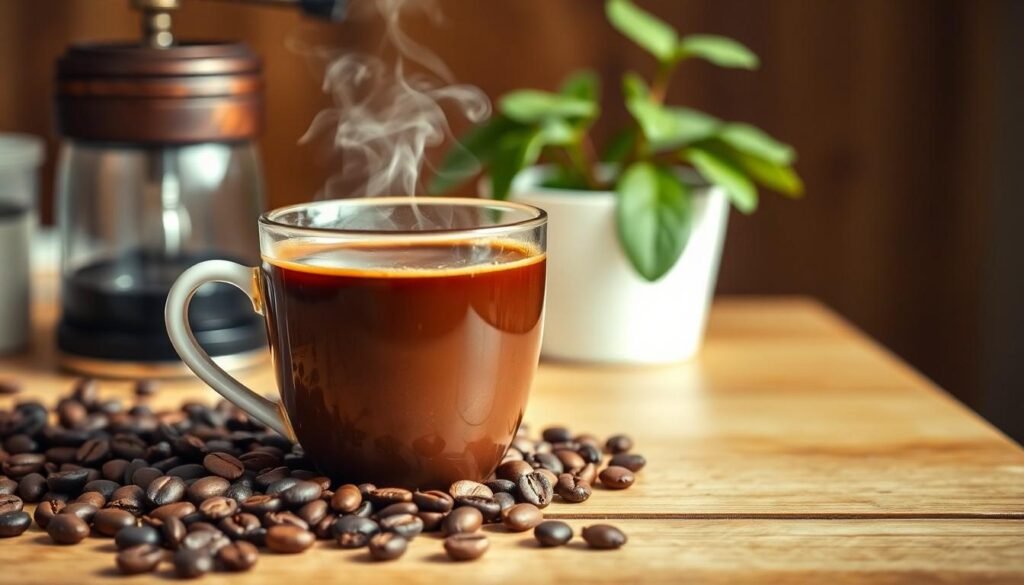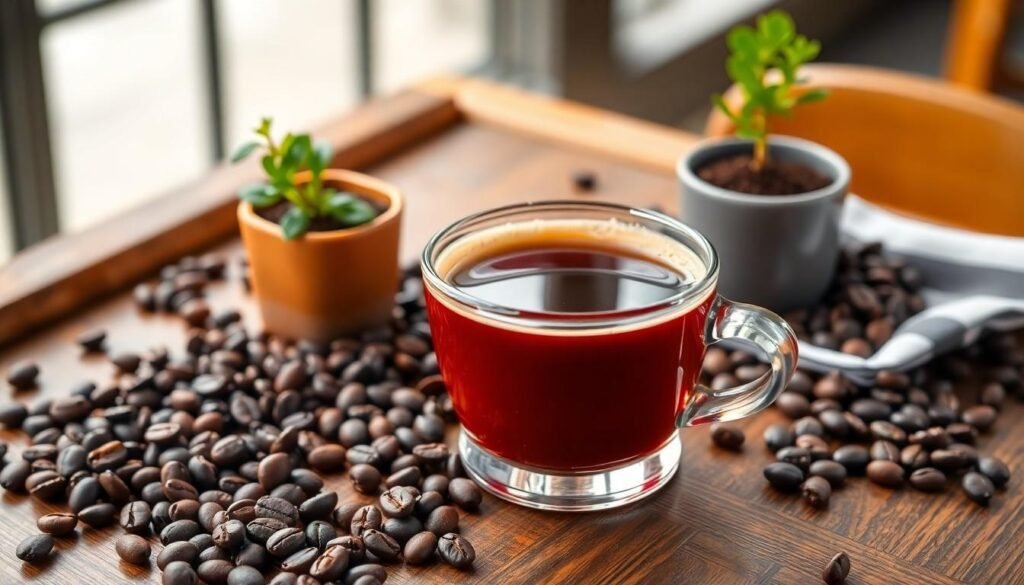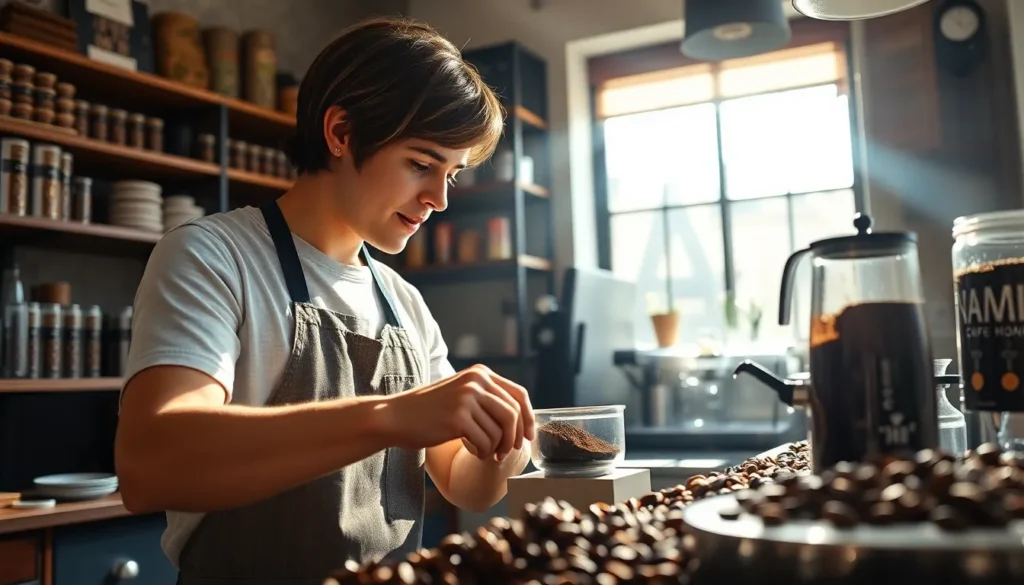
6 Ways Specialty Coffee Brands Build Loyalty and Stand Out
Discover how top specialty coffee brands create lasting loyalty through storytelling, sourcing, and community connection. Real tips from 6 industry experts.

Coffee lovers often find themselves wondering how many mg of caffeine in a cup of coffee. With countless brewing methods and coffee types available, the caffeine content can vary significantly. Understanding this can help individuals make informed choices about their daily caffeine intake.
On average, an 8-ounce cup of brewed coffee contains around 95 mg of caffeine, but this number can fluctuate based on factors like the type of coffee bean and the brewing technique. Whether it’s a strong espresso or a light roast, knowing the caffeine content empowers coffee drinkers to enjoy their brews while managing their energy levels and overall health.
Caffeine content in coffee varies widely, influenced by several factors. For coffee enthusiasts, knowing these details aids in managing daily caffeine intake.
Caffeine, a natural stimulant, primarily derives from coffee beans. An average 8-ounce cup contains about 95 mg of caffeine, although this varies by coffee type. Espresso, for example, has about 63 mg per 1-ounce shot. Specialty blends like Equipoise Coffee may showcase unique caffeine profiles, offering coffee drinkers different energy experiences.
Factors affecting caffeine levels include bean origin, roast level, and brewing methods. Arabica beans typically contain less caffeine than Robusta beans. Darker roasts, despite their strong flavor, often have lower caffeine due to degradation during the roasting process. Brewing techniques, such as French Press or cold brew, can also alter caffeine concentrations, with methods like cold brew often yielding higher caffeine levels per ounce.
Understanding the caffeine content in various types of coffee enhances choices for daily consumption. Several factors impact caffeine levels across different brew methods and coffee varieties.

Brew methods significantly affect caffeine extraction. Techniques like the French Press often yield higher caffeine content due to prolonged steeping times. In contrast, standard drip brewing generally extracts less caffeine per ounce than methods like cold brew.
Cold brew usually delivers greater caffeine levels, averaging about 200 mg per 8-ounce serving, compared to around 95 mg in traditional brewed coffee. Special brewing techniques can create unique flavors while altering caffeine concentration.
Coffee varieties exhibit varying caffeine profiles. Arabica beans, often considered high-quality, typically contain about 1.2% to 1.5% caffeine. Conversely, Robusta beans can reach 2.2% to 2.7%, resulting in a bolder flavor and higher caffeine content.
Specialty coffees, such as Equipoise Coffee, may offer distinctive blends that combine quality and unique caffeine levels, appealing to different palates. Understanding these differences empowers coffee lovers to select their desired coffee type based on caffeine preference.
Caffeine content varies significantly across different coffee types and brewing methods. Understanding these variations helps individuals manage their caffeine intake effectively.
An 8-ounce cup of brewed coffee typically contains about 95 mg of caffeine. This measurement serves as a standard for traditional coffee types. Espresso has a higher caffeine concentration, averaging 63 mg per 1-ounce shot. Various specialty coffee brands may offer unique caffeine profiles, contributing to different overall caffeine experiences.
Caffeine levels fluctuate based on several factors, including bean type and brewing technique. Arabica beans contain around 1.2% to 1.5% caffeine, while Robusta beans can reach 2.2% to 2.7%.
Brewing methods also influence extraction rates; for example, cold brew can average about 200 mg of caffeine per 8-ounce serving.
Darker roasts may contain less caffeine due to degradation during the roasting process, adding to the complexity of caffeine variability in coffee.
Caffeine, a natural stimulant found in coffee, has various health effects that can be both beneficial and risky depending on consumption levels.
Moderate caffeine consumption, typically defined as 200 to 400 mg per day, offers several benefits. It can enhance alertness, improve cognitive function, and increase physical performance. Studies indicate that caffeine may lower the risk of certain diseases, including Parkinson’s and Alzheimer’s. Consuming quality coffee products may provide antioxidants, contributing to overall health. Additionally, caffeine can boost metabolism, aiding in weight management.
Excessive caffeine intake, exceeding 400 mg daily, can lead to adverse effects. Symptoms may include insomnia, jitteriness, increased heart rate, and digestive issues. Individuals with certain conditions, such as anxiety disorders or heart problems, should limit their caffeine consumption. Pregnant women are advised to restrict intake, as high levels can affect fetal development. Awareness of personal sensitivity to caffeine plays a crucial role in managing its health effects effectively.

Recognizing the caffeine content in coffee is essential for anyone looking to manage their intake effectively. With variations influenced by bean type and brewing methods it’s clear that not all cups of coffee are created equal. Whether enjoying a classic brewed cup or a robust cold brew understanding these differences can help individuals tailor their caffeine consumption to their needs.
Coffee drinkers can enjoy their daily ritual while reaping its benefits when they are mindful of personal sensitivity to caffeine and consider the health implications associated with its intake. Balancing enjoyment with awareness will lead to a healthier relationship with this beloved beverage.
An average 8-ounce cup of brewed coffee typically contains about 95 mg of caffeine. However, this amount can vary based on the coffee bean type and brewing method used.
Caffeine content varies by bean type: Arabica beans usually contain around 1.2% to 1.5% caffeine, while Robusta beans can have 2.2% to 2.7%. This difference impacts the overall caffeine levels in brewed coffee.
Brewing methods like the French Press generally yield higher caffeine content due to longer steeping times. Cold brew can also be high, averaging about 200 mg of caffeine per 8-ounce serving.
Moderate caffeine intake (200 to 400 mg per day) can enhance alertness, improve cognitive function, boost physical performance, and lower the risk of certain diseases like Parkinson’s and Alzheimer’s.
Consuming more than 400 mg of caffeine daily can lead to negative effects, such as insomnia, jitters, and an increased heart rate. It’s essential to be mindful of your intake based on personal health conditions.
Darker roasts may have lower caffeine levels due to degradation during the roasting process. This is a key factor to consider when choosing a coffee roast type.
Yes, pregnant women are advised to limit caffeine consumption due to potential effects on fetal development. It’s essential to consult a healthcare provider regarding safe limits.
To manage caffeine intake effectively, be aware of the caffeine content in various coffee types and brewing methods. Monitor your personal sensitivity to caffeine and adjust your consumption accordingly for optimal health.

Discover how top specialty coffee brands create lasting loyalty through storytelling, sourcing, and community connection. Real tips from 6 industry experts.

Discover the ultimate showdown between two beloved coffee brewing methods: the French press and Chemex. Explore how each technique caters to distinct palates, with the French press delivering bold flavors and the Chemex presenting a bright, clean taste.

Unlock the secrets to brewing the perfect cup of coffee with our comprehensive guide on using a coffee scale. Discover how precise measurements enhance flavor and consistency while eliminating bitterness.

Discover how water temperature plays a vital role in brewing the perfect cup of coffee. This article delves into the ideal temperature range of 195°F to 205°F for optimal flavor extraction, enhancing the enjoyment of high-quality beans.

Discover the world of curated specialty coffee bundles, perfect for enthusiasts seeking quality and craftsmanship. This article explores the benefits of ethically sourced, small-batch beans from brands like Equipoise Coffee, offering diverse flavor profiles that elevate your brewing experience.

Discover the art of manual brewing to elevate your coffee experience! This article explores various techniques like pour-over, French press, and AeroPress, revealing how they enhance flavor and your connection to every cup.

Discover how to balance productivity and rest with the perfect cup of coffee. This article explores the art of brewing high-quality coffee to enhance your work routine while promoting mindful breaks.

Transform your morning coffee ritual into a mindful experience! This article explores the importance of slowing down to appreciate high-quality beans, ethical sourcing, and small-batch roasting.

Discover the world of specialty grade coffee and what sets it apart for true enthusiasts. This article delves into the strict standards, exceptional flavors, and unique origins that define high-quality brews.